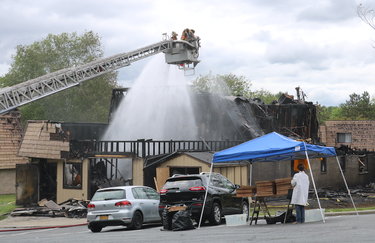Bethlehem approves tax breaks for volunteer first responders
BETHLEHEM — On Feb. 22, the Bethlehem Town Board unanimously approved a property tax exemption for volunteer firefighters and ambulance crews.
Last year, Governor Kathy Hochul signed into law a bill that allows local taxing jurisdictions to provide up to a 10-percent exemption for first responders who have volunteered for a period of between two and five years and whose primary residence is located in that jurisdiction.
“A lot of up front work went into carefully crafting this new local law,” said Supervisor David VanLuven in a release from the town. “I am so grateful to Jim Potter, Terry Hannigan, Rick Webster, and Tim Hannigan for working quickly and collaboratively to write it.”
The goal, said the release, is to attract more homeowner residents to join and remain in the town’s volunteer emergency services, and to help make home ownership more affordable for younger volunteers who want to remain in Bethlehem.
The exemption will equal 10-percent of the assessed value of the property for qualified volunteer firefighters and volunteer ambulance service personnel.
Applicants would need to have two years of certified service and live in the town of Bethlehem. The exemption is exclusively for residential purposes, and the property must be the primary residence of the volunteer.
Volunteers with more than 20 years of service may qualify for a lifetime exemption as long as they maintain a primary residence in the town of Bethlehem.
Like other property tax exemptions, the Volunteer Firefighters and Ambulance Workers Exemption would have no fiscal impact to the town budget. Projections by the town comptroller indicate that the owner of a home with an assessed value of $261,000 (the average home value in Bethlehem in 2022) would see an increase of 80 cents to their Bethlehem property tax amount.
By approving the tax exemption before the state-set deadline of March 1, the volunteer firefighters and ambulance volunteers can begin getting the benefits in the next tax year. Passing the law after March 1 would have delayed the benefits to the 2025 tax year.
— Melissa Hale-Spencer

